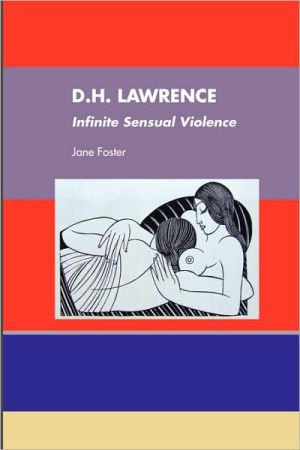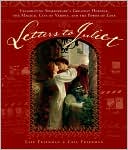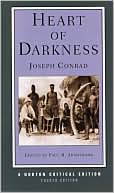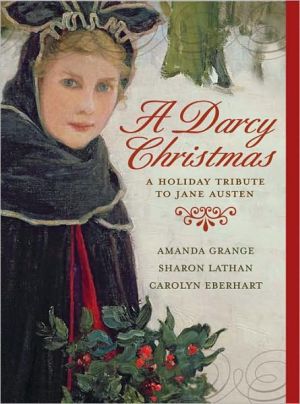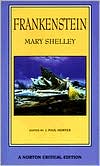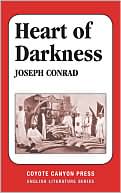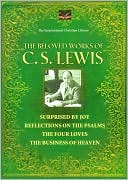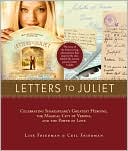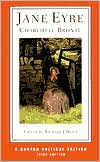D.H. Lawrence
D.H. LAWRENCE\ 'Infinite sensual violence' is one of the phrases that D.H. Lawrence employs in his two great novels, The Rainbow and Women in Love which, with Lady Chatterley's Lover, form the heart of this study of love, emotion, sexuality, gender, identity and feminism in Lawrence's work. M.K. Pace sees Lawrence as still today one of the most challenging of writers, whose provocative, angry and sometimes simplistic ideas polarize critics and feminists.\ D.H. Lawrence spawned more versions...
Search in google:
D.H. LAWRENCE'Infinite sensual violence' is one of the phrases that D.H. Lawrence employs in his two great novels, The Rainbow and Women in Love which, with Lady Chatterley's Lover, form the heart of this study of love, emotion, sexuality, gender, identity and feminism in Lawrence's work. M.K. Pace sees Lawrence as still today one of the most challenging of writers, whose provocative, angry and sometimes simplistic ideas polarize critics and feminists. D.H. Lawrence spawned more versions of himself, more D.H. Lawrences, than many other writers. There are the Lawrences in the works: the poet, playwright, correspondent, novelist, painter, travel writer, historian, critic and psychologist. In the books, and in criticism published since, Lawrence plays a number of roles: sociologist, Marxist, traveller, prophet, literary critic, feminist, mystic, martyr, politician, folklorist, theologian, agony aunt, genius, liar, fascist, Midlander, poet and pantheist. D.H. Lawrence has received more critical attention than most writers. He is in the Shakespeare, Hardy and Dickens league. Like Hardy and Shakespeare, D.H. Lawrence is an industry, an icon, the subject of TV, radio, magazines, films, holidays, tours, university courses, festivals, shops, cafes, walks, etc. One of the main attractions of D.H. Lawrence’s fictions - it’s the same with Hardy, Austen, Bronte - is love. It’s his central subject. When he writes of love he can weave in just about anything he likes. Love - or the equivalent terms ‘romance’ or ‘reltationships’ or ‘feelings’ - helps to make Lawrence popular. Always in D.H. Lawrence’s output there is love and sexuality - you can see him developing the tradition of Austen, Hardy and Eliot, or you can break him apart as a misogynist, as Kate Millet has done. Or as a wife-beater, as Mary Daly and Katherine Mansfield have done. Or you can write about the positive images of women, or his homosexuality. Then there is sodomy, a favourite subject of modern European writers. There is the political Lawrence, the utopian visionary, the socialist, and the neo-fascist. The religious Lawrence - with his unusual beliefs, his paganism, his new Christianity, his Apocalyptical thinking. Lawrence the philosopher, the intuitive explorer of a heap of issues. Lawrence with numerous famous friendships (Russell, Huxley, Murry, Frieda, Mansfield, Aldington, etc). Or Lawrence the culture merchant, trading in Nietzsche, Dostoievsky, Freud, the Bible. And the anti-hero of counter-culture. Includes illustrations, bibliography and notes.
